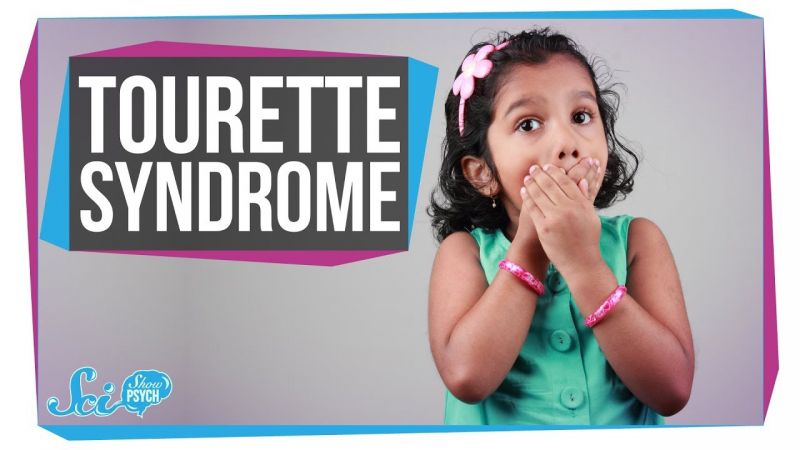Why We Need to Change the Conversation Around Tourette’s Syndrome
I was diagnosed with Tourette’s Syndrome nearly twenty years ago. Here’s what the world gets wrong about it — and how we can reframe the narrative.
Escrito por Tara Lerman

01 Tara was diagnosed with Tourette’s Syndrome when she was ten years old. Although the disorder itself can be difficult, she found it was harder to deal with stigma.
02 Now, she advocates for better representation/education about Tourette’s Syndrome, from media depictions to classroom etiquette.
When I was ten years old, my parents drove me to a doctor’s office about 30 miles away from my hometown in Southeastern Connecticut. I didn’t know where we were going — or why.
When we arrived, we were led into a dimly lit room. This didn’t look like a normal doctor’s office: there was no scale or stethoscope or examination chair, just a forest green couch and a glass table. With my father to my left and my mother to my right, a silver-haired man entered the space. As he closed the door behind him, he introduced himself as a psychiatrist. Then he told me something I’d never forget:
“You have a tic disorder called Tourette’s Syndrome.”
Ever since I could remember, my body moved in inexplicable ways. I made noises that I couldn’t control. I never really understood why I did the things I did, but I couldn’t ignore them either. I’d learn in that doctor’s office that these behaviors are called tics, and they’re symptoms of a larger disorder. It was the first time I’d heard of Tourette’s, but everything was already starting to make a bit more sense.

Tourette Syndrome: What Makes People Tic?
Understanding Tourette’s Syndrome
The CDC defines Tourette’s Syndrome as “a condition of the nervous system that causes people to have tics — sudden twitches, movements, or sounds that people do repeatedly.”
Every case of Tourette’s is different, and some are more mild or severe than others. In most instances, Tourette’s syndrome is accompanied by at least one other mental, behavioral or developmental disorder. For me, that’s obsessive-compulsive disorder, but others who have Tourette’s report experiencing ADHD, depression, general anxiety disorder, and autism spectrum disorder, among others.
People who have Tourette’s will exhibit a number of different tics throughout their lifetime. Most tics fall into one of two categories: motor tics and vocal tics. Motor tics refer specifically to movements of the body, such as blinking or nodding, while vocal tics are sounds that an individual makes using their voice, such as coughing or clearing their throat. Someone with Tourette’s can exhibit simple tics — those involving movements of only a few body parts — or complex tics that involve many different body parts in a series of movements.
I recognize that this experience may sound foreign to many. To help people understand what it’s like to live with a tic disorder, I offer a universal analogy:
Imagine having the urge to sneeze in a world where sneezing is frowned upon. People don’t say “God bless you” when you sneeze. Instead, they respond by laughing, asking you to quiet down or imitating your sneeze. No one else has to sneeze, nor do they know what a sneeze is. So you hold in your sneeze for fear of being ostracized. The longer you hold in the sneeze, the louder and more intense it becomes when you eventually release it.
This is precisely what a tic feels like for someone who has Tourette’s. This is the mental and physical process we undergo every minute of every day. If it sounds taxing, that’s because it is.

When Stigma Becomes Debilitating
In an effort to appear more “normal,” I trained myself to control my sudden jerks and movements in front of classmates and teachers. I was able to mask my tics in specific environments, but I could only hold them in for so long.
I have a distinct memory of being bullied in the fourth grade by two boys who would imitate my tics. They mocked my movements, laughed and high-fived each other, leaving me feeling anxious and embarrassed. One could argue that these boys didn’t know any better — we were just kids. But I’ve also been the victim of similar judgments from adults. In fifth grade, my music teacher asked me to “stop making noise and disrupting the class.” On multiple occasions, strangers on the subway or the street have stared at me with disgust. Coworkers have questioned my loud outbursts in the office. Friends of friends have asked me why I’m “making those weird sounds.”
These instances have become so commonplace in my life that they no longer surprise me. I have come to realize that the stigma around Tourette’s — and the social encounters that I’ve learned to entertain as a result — are even more debilitating than the disorder itself.

It’s hard enough to live with a disorder that makes it difficult to control certain movements. But constantly having to hide my tics and worrying about what people will think of me — well, that’s straight-up exhausting.
It might be easier, my friends have told me, to use these experiences as an opportunity to educate. “Just tell them you have Tourette’s,” a friend from college once suggested. But here’s the thing: Even the term “Tourette’s syndrome” triggers mixed responses. Thanks to continuous misrepresentation of the disorder in the media, Tourette’s is more often cited as the hook of an off-color joke rather than a serious disorder. Comedians and television writers have long sensationalized symptoms of Tourette’s, exaggerating the more grotesque aspects of the disorder to advance a plot line.
In fact, almost every media depiction of Tourette’s features a dramatic case of the disorder known as coprolalia, or the uncontrollable utterance of inappropriate language like swear words and slurs. However, only a small percentage of people with Tourette’s (10-15% according to the National Institute of Neurological Disorders and Stroke) actually suffer from coprolalia. And yet, there’s now a widespread assumption that anyone who has Tourette’s also has coprolalia.
Changing the Narrative
I’m not wild about the world knowing I have Tourette’s syndrome — but that’s not because I’m ashamed of my disorder. It’s part of my story, and I wouldn’t give that up for anything. I’ve kept my Tourette’s a secret from so many people in my life because I don’t like how the world views people who have it. Luckily, it’s not too late to change the conversation. Once the world begins to understand what it means to have Tourette’s, people like me will feel more empowered to reveal our authentic selves — tics and all.
<>
For more information about Tourette’s Syndrome, check out the following resources:
CDC Tourette’s Syndrome Fact Sheet
Sobre el autor
Tara Lerman is a writer and editor based in Washington, D.C. She’s also an avid hiker, climber and coffee enthusiast. Connect with her on Instagram @taralerman13 or check out her writing portfolio at www.taralerman.com.
Apoya nuestro trabajo
Nuestra misión es cambiar la manera en que el mundo percibe la salud mental.



















